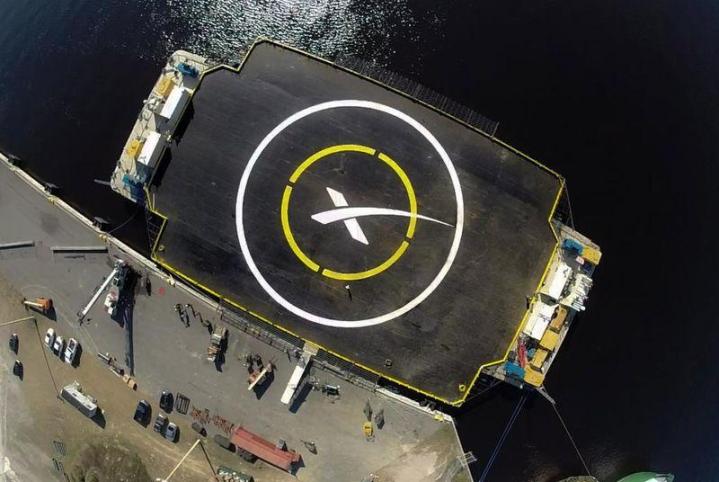
Perhaps this news shouldn’t come as too much of a surprise, after all, SpaceX founder and CEO Elon Musk said last year that his team’s first attempt at landing the equivalent of “a 14-story building” on a 91 x 52-meter floating barge only had a 50 percent chance of succeeding.
The mission to deliver supplies to the International Space Station started well on Saturday morning with the successful launch of its Falcon 9 rocket from Cape Canaveral in Florida.
Once the cargo-laden capsule and rocket had separated, all eyes were on whether the booster would return to Earth and land damage free on the barge, otherwise known as the ‘drone spaceport ship,’ which was floating in wait off the east coast of Florida.
Alas, the landing didn’t work out in the way Musk and his team had hoped. While the rocket’s engine thrust managed to slow its descent, the impact was too heavy, with damage incurred by both the rocket and the barge.
Musk tweeted, “Rocket made it to the drone spaceport ship, but landed hard. Close, but no cigar this time. Bodes well for the future tho,” adding that he was unable to get a “good landing/impact video” as the conditions were dark and foggy.
The SpaceX boss said that while Falcon 9’s grid fins worked “extremely well” from hypersonic velocity to subsonic, the heavy landing was caused by the vehicle running out of hydraulic fluid just before touchdown.
The failed landing means SpaceX’s plan to reuse the Falcon 9 rocket needs some work, but Musk and his team have never been under any illusions as to the size of the challenge. However, he’s pretty confident they can get it right in the 12 or so launches planned for this year, a success that could ultimately help to dramatically reduce the cost of space travel.
Editors' Recommendations
- How SpaceX could transform Starlink into an ultraprecise GPS network
- Watch SpaceX practice an emergency escape from its Crew Dragon capsule
- How to watch the SpaceX Dragon spacecraft depart the ISS today
- Digital Trends Live: Workers may strike, HQ Trivia is back, SpaceX delivers
- SpaceX selected to deliver cargo to NASA’s Lunar Gateway space station

